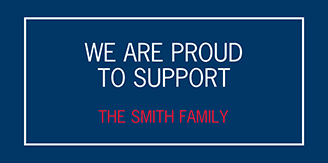Book cover design
People often talk about the importance of a book's cover design, alluding that a great eye-catching cover can attract buyers and influence their decision to purchase the book. It is true that a well-designed cover is critical to your book having a professionally published appearance, but remember, self-published books are rarely displayed in the high street bookstores. Buyers on the internet browse online bookstores differently than they would a high street store. In most cases, they already have an author or title in mind, or they are searching by keywords or phrases (see book marketing). The book cover design remains a vital selling point online, but its impact can be reduced. This fact behind the sales of your book cannot be under-emphasised.
We all love a great book cover and we all want our book to look the best it can, but we need to keep the reality of what makes our book a great book firmly in the forefront: the content. It is vital...
22 December 2014
I want to self-publish – what’s next? If you’ve decided that self-publishing is the way for you to go, where do you start? You’ve heard terms like ISBN, CIP, Legal deposit, POD, ebook formatting, online distribution, social media marketing, and (take a deep breath) – you’re finding it all a bit overwhelming. Well, read on and I will endeavour to answer all your questions. Congratulations, you've chosen to self-publish. Now what? This next few posts will take you through the many processes of self-publishing and introduce you to the terms, phrases, and requirements that are involved. From now on, you are no longer just an author – you are now an author/publisher! Getting Started To begin with you need to decide how involved you want to be in the design and creation of your book/ebook. Some authors are comfortable with taking complete control over their project and are willing to learn the process from st...
26 November 2014
Which type of publishing is for you? Congratulations! You've finished your book, you've had it edited and you've done some research and learned all about the types of publishing that is on offer. As you consider your publishing options, here are a few things to bear in mind: Traditional Publishing: Most traditional publishers do not accept unsolicited manuscripts, so you will need a literary agent. Most literary agents do not accept unsolicited manuscripts, due to the huge numbers of manuscript submissions. Some publishers and agents will only consider first-time authors through referrals from a well-known, traditionally published author. Traditional publishers usually only accept manuscripts produced by authors with proven writing credentials and concise samples of their work. If you are adamant about choosing traditional publishing, expect to receive a few rejection slips (most authors ha...
25 October 2014
Self-Publishing Last time we discussed the different types of publishing and looked at traditional publishing and partnership publishing. Now it's time to look at self-publishing. Self-publishing is when the author of a book/ebook takes on the role of publisher and is responsible for the production, marketing, and distribution. Although self-publishing has been around for many years, the exposure now available via the internet, online global distribution, and the convenience of Print On Demand (POD) has brought this form of publishing to the forefront. It has become the first choice of even seasoned, traditionally published authors. Advantages: Authors have full control over their book, earn 100% royalties, retain all of their rights, and are not bound by a contract. Marketing, if undertaken properly via the Internet and social media, does not have to be expensive, and if conducted with a POD distribution system in place, titles can be available for sal...
5 October 2014

)

